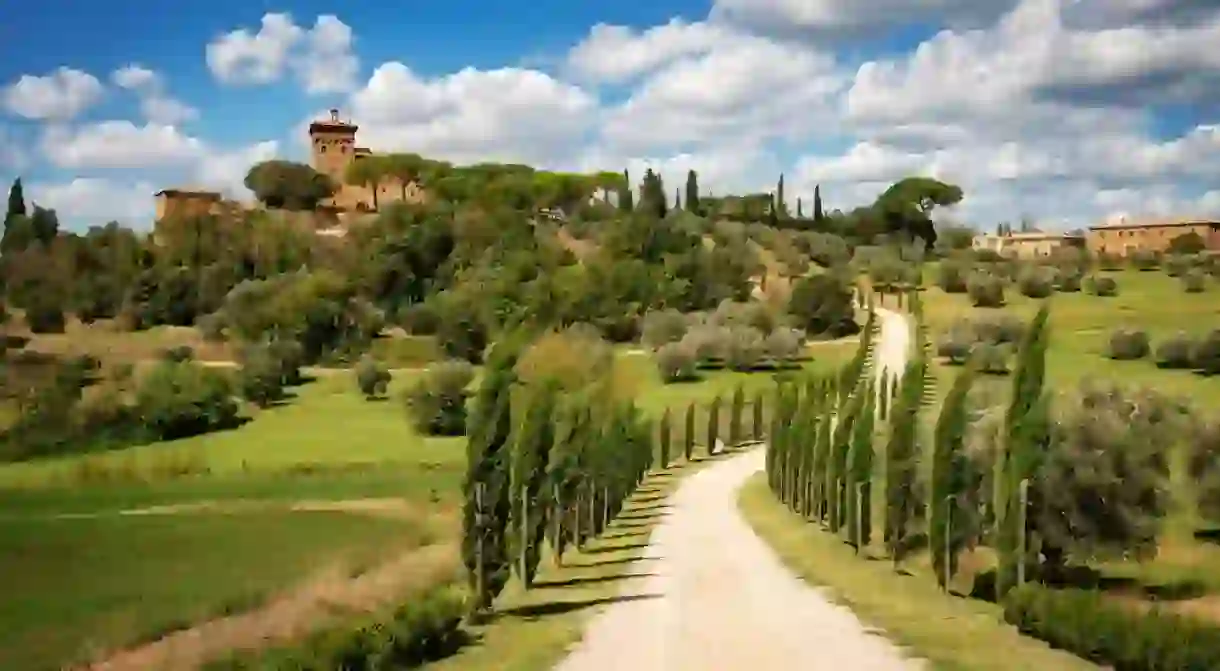9 Must-Visit Attractions in Tuscany, Italy

Tuscany is one of the most charming, romantic and beautiful regions of Italy, filled with historic cities and beautiful natural landscapes, from spectacular mountains to beaches.
Tuscany is the kind of place where anyone who’s been there sighs wistfully after uttering the name. It is the embodiment of Italy’s la dolce vita lifestyle, with a diverse and stunning natural landscape encompassing the rolling lush greens of Chianti’s olive groves and vineyards, the imposing and rugged Apennine Mountains and the Tyrrhenian sea, which laps against the unspoilt beaches on the island of Elba. Not to mention its regional capital Florence, which is an open-air art gallery, boasting some of the world’s most recognisable Renaissance art and architecture. Here are the must-visit attractions in Tuscany, Italy.
Marvel at the Florence Duomo
Architectural Landmark, Cathedral

The gigantic, marble-fronted Cattedrale di Santa Maria del Fiore, first built in 1296, is the fourth-biggest cathedral in the world and easily one of the most famous. The complex contains three buildings – the cathedral, the Baptistery and Giotto’s Campanile – which form a major part of the Unesco World Heritage Site in the centre of Florence. Head inside to take a break from the Tuscan sun and to admire the patterned, marbled floor – which looks like a mosaiced, stone carpet.
See world-famous art at the Uffizi
Museum, Art Gallery

View incredible sculptures at Accademia Gallery
Art Gallery, Museum

Some bloke called David is on constant display here (he sounds like a bit of an exhibitionist). Aside from Michelangelo’s most famous creation, you will be treated to a rich treasure trove of sculptures in this much-visited gallery space, with seven other works by Michelangelo but also the Madonna with Child by Sandro Botticelli, Domenico Ghirlandaio’s Saint Stephen and a series of Russian icons. Top tip: if you don’t make it to the Accademia, there’s an exact copy of Michelangelo’s statue of David next to Palazzo Vecchio in Florence’s main square, Piazza della Signoria.
Resist taking silly photos at the Leaning Tower of Pisa
Building, Church

Have a cappuccino on the Piazza del Campo, Siena
Building

Road trip through Val d’Orcia
Natural Feature

Get active on Elba island
Natural Feature

Take a boat to Isola del Giglio
Natural Feature

Admire the Piero della Francesca frescoes, Arezzo
Architectural Landmark
One of the most admired masters of the early Italian Renaissance, Piero della Francesca’s frescoes are a must-see for any arty visitor to Arezzo, a rural hilltop city in eastern Tuscany. Most notable is his version of the Legend of the True Cross – a tale of how the relics from Jesus’s cross allegedly arrived in Europe – which you can find painted in Arezzo’s unassuming, late-medieval church, the Basilica of San Francesco.
Trips and Tours in Italy
Architectural Landmark

Dreaming of an Italian vacation? Make it epic and unforgettable when you book a spot on one of the many amazing multi-day tours in our Italy collection. Whether you yearn for the rolling hills of Tuscany or the winding coasts of the Amalfi, there are itineraries here to suit every kind of traveller.
This is an updated version of an article originally by Francesca Masotti.













